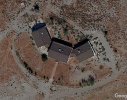- Joined
- Jan 15, 2002
- Professional Status
- Certified General Appraiser
- State
- California
Let me ask you this…If a new appraiser is reviewing the same property and features, then shouldn’t the evaluation be close in proximity?
If the answer to that is no, then that seems to a problem with the profession. Not me.
When you say "close in proximity" are you referring to the value conclusions? If so then the answer is usually yes. But with that said, how similar the value conclusions are is virtually always dependent on the availability of the really comparable data. By which I am referring to comparability to your property's dominant attributes.
If I'm appraising a home that's part of the 400 unit residential subdivision consisting of 4 floorplans and there have been 8 model matches that have sold in the last 60 days then those sale prices will probably be tightly clustered overall. Most buyers are going to be operating within that range and as a result most appraisers will also be operating in that range.
But if I'm appraising a property that is unique for its area and there are NO sales of really similar properties then I'm going to have to scratch to come up with enough sales to make a meaningful comparison and I will be forced - by the lack of homogeneity - to bridge the gap between these various differences via use of my subjective judgment. I'm not doing that because I want to do it, but because I have no other choice but to do it.
That problem becomes compounded exponentially as the number and type of variables increase. One or two variables is relatively easy but 5 or 6 significant variables becomes a nightmare of moving parts. In that event we will see a wide range in the values buyers are paying, as as a result we'll see more variance among the appraisers who are using that data. In computer parlance we'd call it garbage in-garbage out. In no case can appraisers be more consistent with their conclusions than the data they're using.


